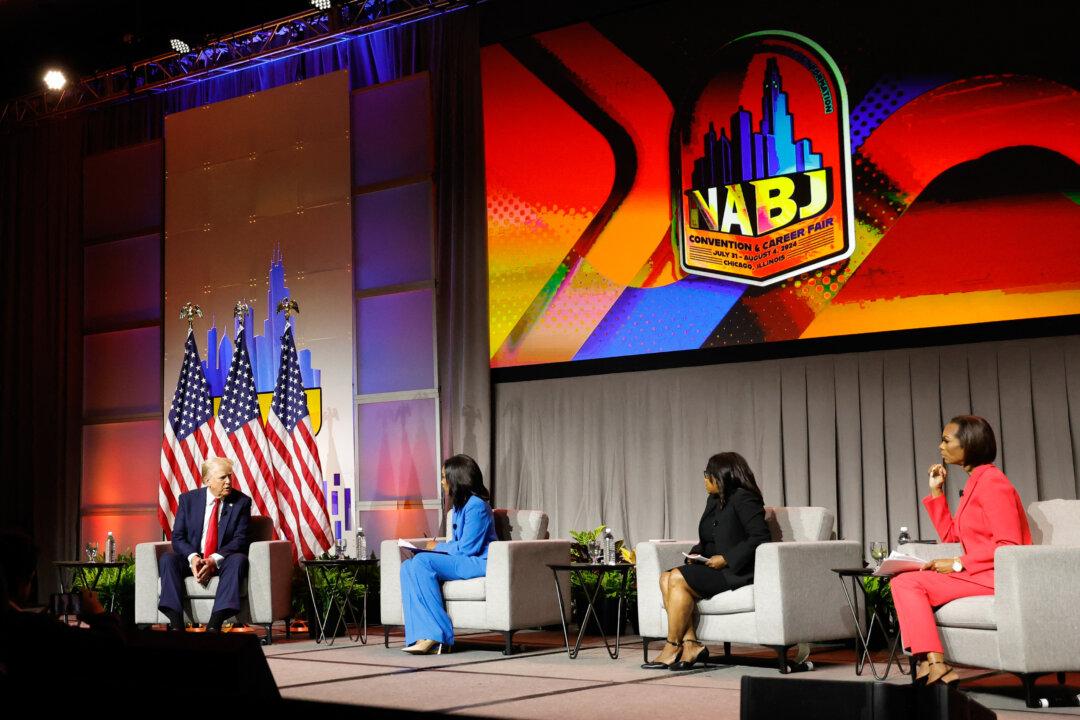Former President Donald Trump sat for what quickly became a contentious interview with a panel of journalists in Chicago on July 31.
The former president took questions from Rachel Scott of ABC News, Kadia Goba of Semafor, and Harris Faulkner of Fox News before a live audience at the annual convention of the National Association of Black Journalists, which routinely hosts interviews with presidential candidates during election years.





